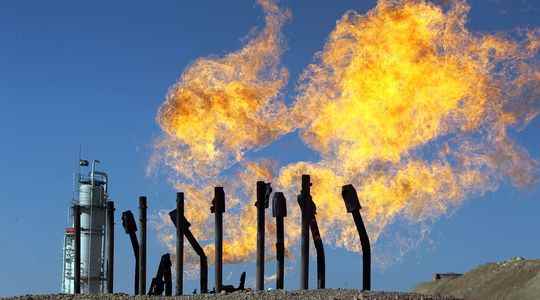In 2022, war has come to Europe’s doorstep with millions of people displaced. This conflict reminds us how dependent Europe is today in terms of energy, prompting us to accelerate even more our shift towards an economy less dependent on fossil fuels.
In 1990, Europe was 40% dependent on energy imports. Today this figure exceeds 60%. If we exclude the North Sea fields, and the hydrocarbons coming from Norway in particular, themselves depleted, our continent is generally devoid of fossil resources, even though in 2022, the energy consumed unfortunately remains at 80% dependent. In addition, the low availability of nuclear power in electricity production and its decline at European level have been offset by additional imports of fossil resources, further weakening our energy independence.
Energy imports are highly concentrated and come largely from Russia, which is by far its largest supplier (40% for gas, 30% for oil and almost 50% for coal). In order to function, our society and our economy are therefore now entirely dependent on our imports of energy resources from the East.
100 billion deficit
Already in 2021, before the conflict, the economic recovery had led to a spike in energy prices and the proceeds from the sale of Russian oil and gas exports had exceeded 240 billion dollars, an increase of 60% on a year. At the end of 2021, the Russian trade surplus reached a record level, at nearly 70 billion dollars in the last quarter. For its part, Europe’s trade deficit with Russia has widened from 16 to 70 billion euros, and Europe’s energy addition for imports of Russian fossil resources has increased from 60 billion euros. euros in 2020 to 100 billion in 2021.
Since then, oil prices have doubled and gas reached its all-time high on March 7, at 345 euros per megawatt, against 50 euros a year earlier. Europe’s gas bill rose from 200 million euros a day at the start of the year to more than 800 million euros a day in March. If we add oil and coal, Europe today pays more than a billion euros a day to Russia for its energy bill.
So what to do? Faced with this situation, the urgency is to quickly disconnect ourselves from dependence on Russian fossils. And the recipe, we have it. This is the European Commission’s “Fit For 55” program which aims to reduce our emissions by 55% by 2030, with the aim of reducing consumption by 40% through energy efficiency, reaching 40% of renewables in the energy production mix and to prohibit the sale of fossil-powered vehicles by 2035. The implementation of this plan will make it possible to become 100% independent of Russian fossil fuels. We had 3000 days to carry out this plan and respond to the climate emergency. We will indeed have to move faster to ensure our energy security and independence.
Reduce demand
Without waiting for the realization of this plan, we will also have to be more economical in our consumption. This lever of sobriety is in fact the quickest to activate to reduce our dependence. To do this, it will be necessary to follow the recommendations unveiled in March by the International Energy Agency by reducing speed on the motorway, favoring the train over the plane, car-free Sundays in certain cities or alternative traffic… A plan that can be implemented in four months and would reduce oil consumption by 2.7 million barrels per day, a more than substantial share of the oil imported by Europe from Russia…
The crisis linked to the Covid-19 pandemic had forced us to rethink our production model and to accelerate investments in the energy transition. Current geopolitical events are undoubtedly accelerating the phenomenon, paving the way for a Europe which henceforth has no other path to pursue than that of the Green Deal. This time, climate skeptics will be left speechless.
